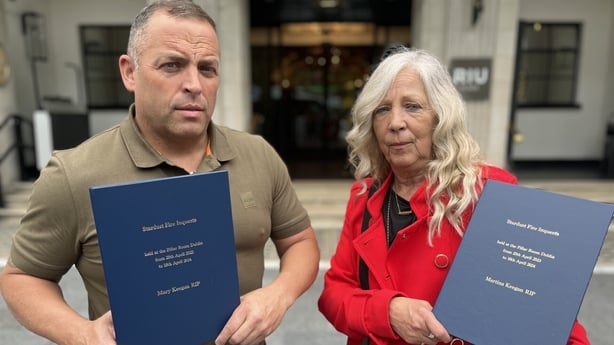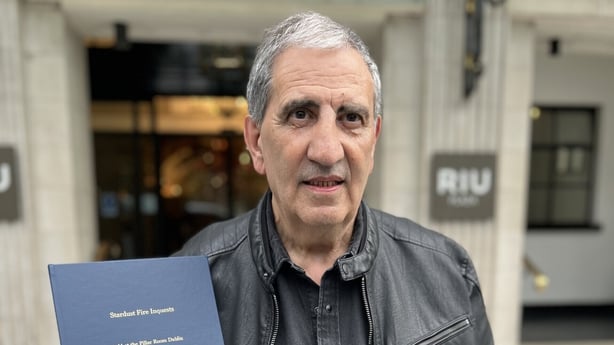Families of the Stardust victims have met Minister for Justice Helen McEntee to discuss how the holding of inquests could be reformed.
Among the changes discussed was the notion of holding such hearings in less formal settings than a courtroom.
Speaking afterwards, Antoinette Keegan, who survived the 1981 fire but whose two sisters, Mary and Martina did not, said the meeting had been emotional.
She said the families gave their thoughts on how future inquests could be held.
'We were talking about updating the coroner's court. Rather than having it look like a court, more of a place where a family can feel comfortable in, like we did in the Pillar Room (where the Stardust inquests were held),' she said.

Ms Keegan also said the Minister told them that the Government was "still working on" a redress scheme for relatives and survivors.
She added that families are due to attend an event with President Michael D Higgins in Áras an Uachtaráin in October.
48 people died when a fire ripped through the Artane night club in the early hours of 14 February 1981.
The jury also found that the fire had started in the hot press in the bar, due to an electrical fault. It also concluded that exits were locked, chained or otherwise obstructed at the time of the fire.
Today, the families were also presented with bound copies of the findings by Dr Myra Cullinane, who had presided over the proceedings in the Pillar Room on the grounds of the Rotunda Hospital.
Paul Morgan, whose sister Susie was among the dead, said he was happy with the day's event and said that it was "another chapter in the Stardust".

Late last year, Minister for Justice Helen McEntee launched a consultation process in relation to the coroner service.
Following the conclusion of the Stardust inquests, legal representatives for the families called for reform of how inquests are carried out.
In correspondence to the minister, they said that two changes, regarding jury selection and legal aid, that were rolled out for the Stardust hearings should be enacted across the board.
In 2022, Minister McEntee amended legislation to allow for the "independent selection" of the Stardust jury and also ensured the jurors would continue to be paid wages by their employers, as is the case with criminal and civil trials.
The jurors were selected by way of the electoral register and a senior counsel, as opposed to by gardaí which is the normal case for inquests.







